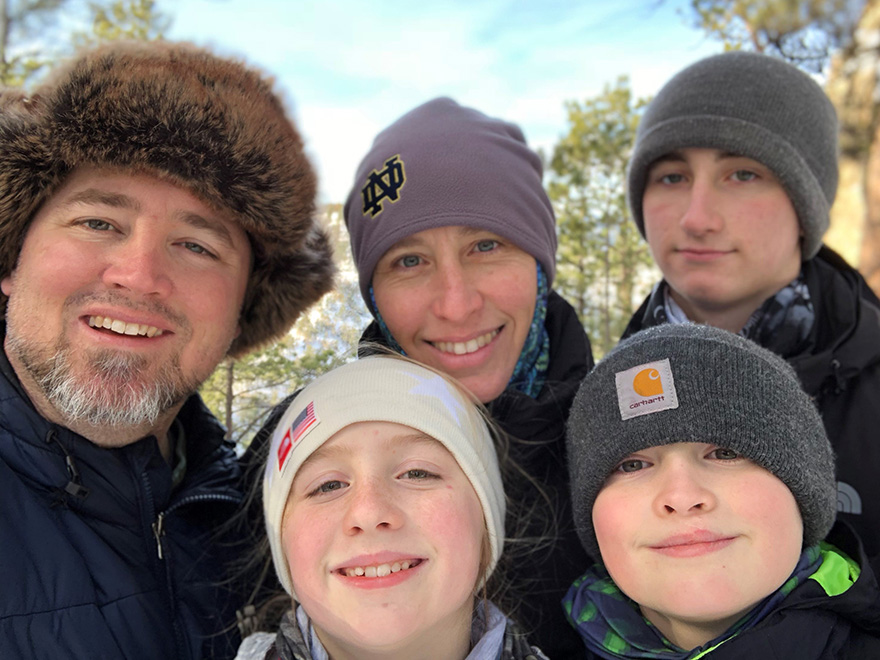A Citizen of the Nation, a Citizen of Heaven
Oscar came home on the day before the election this week with the news that his sixth-grade class would be counting their own votes for President. I asked him if he knew who he would vote for and he gave an immediate, straightforward “yes.”
I then asked him if he had thought about how his faith might influence his decision, and he wasn’t sure what I meant. I recognized this as a great moment to help him start to form his own conscience regarding political involvement.
I discovered that the trick to it all was not trying to convince him to hold certain opinions, but to lay out both sides of an issue and then to hold that up to the vision of the world that our faith offers us. The hardest part of it all was letting it rest there and giving him the freedom to draw his own conclusions.
Earlier in the semester, he had done research on the candidates’ positions on immigration, so we used that as an example. We talked about how Jesus welcomed strangers and foreigners, and was an immigrant himself when Joseph and Mary fled with him to Egypt. Based on the example of Jesus, it was not difficult for Oscar to form his opinion on how each candidate responds to immigrants among us.
I relished the opportunity to muddy the waters for him, so I broadened the conversation to include several of the other issues that the bishops of this nation have indicated are important issues for us to consider when voting, from protecting human life to social justice.
At the end of our conversation, I returned to my question about who he would vote for and he was much more cautious and reserved. While it is not a complex task to draw conclusions regarding the issues in and of themselves, it is a much more difficult task to make a reasoned decision about a candidate whose vision only partly aligns with those conclusions. Because there is no perfect Catholic candidate whose positions align completely with the values of our faith, we had to think carefully and weigh the options. Life issues, of course, hold prominence because of their gravity, but does that mean we utterly ignore all the other issues?
We didn’t come to any hard conclusions, and he left our conversation rather unsettled. I was pleased with this outcome—it was just what I wanted, to be honest—because a good Catholic should be troubled by elections. We have a clear mission to build the kingdom of God in the here-and-now, but we step into an imperfect world when we leave our pews.
I came to realize that this conversation was even less about the ideas and issues and topics themselves—it was about the way in which Oscar forms his opinions. The new task of parenting a middle-schooler became clear to me: we have to form him in a way that will allow him to form his own conscience.
We finished our talk by discussing voting as a moral act and a great responsibility. The person I cast a vote for, I explained, will make decisions on my behalf, so I bear the burden of responsibility for placing power in that person’s hands. Because voting is a moral act, I have to make my decision with my conscience—not with my gut, but in that place within me where the voice of God resounds.
My hope is that our conversation helped Oscar become more attuned to that voice. It will help him grow into a responsible citizen of this nation and a faithful citizen of heaven.





